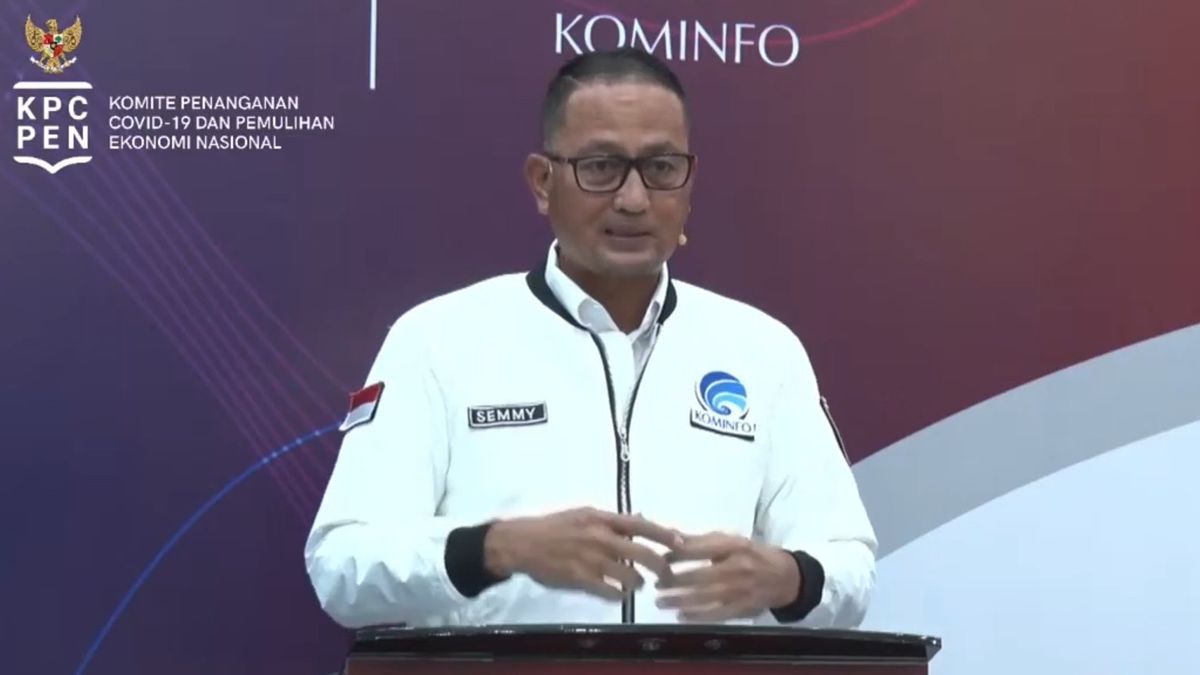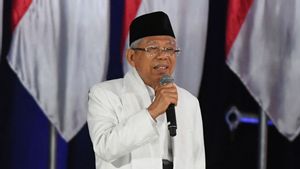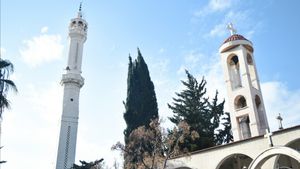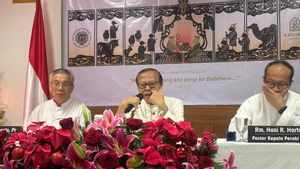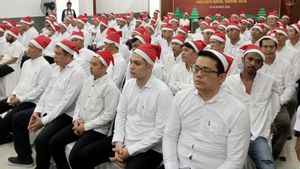JAKARTA - The spread of disinformation and hoax news related to COVID-19 in Indonesia is still very high, with 1,759 content blocked by the Ministry of Communication and Informatics (Kominfo).
Director General of Applications and Informatics, Kominfo (Dirjen Aptika), Samuel Abrijani Pangerapan said that currently there are three types of infodemics that are widespread in society. Of which 2,020 hoaxes fall into 1,197 categories, with 1,759 hoaxes of which have been taken down from the internet.
"This has become a new problem apart from the COVID-19 pandemic itself. There are three types, the first is the type of disinformation that is deliberately made to distract information circulating, or to give wrong information that is dangerous for the public," Samuel said during an online press conference on Monday October 19.
"The second is malinformation, the information is actual, but it targets certain people with certain goals. The third thing is also related to misinformation that is not right, there is no intention," he continued.
Samuel added that currently his party was in the process of controlling, not to limit society to freedom of expression or freedom of opinion. But because of this pandemic situation, everyone needs to correct misinformation so as not to create unrest in the community, let alone disturb public order.
"Examples of infodemics, incomplete understanding of the community. Stigma against hospitals, medical personnel, and standardized processes, this is what becomes dangerous for society if it ends up stigmatizing," said Samuel.
Semuel said, currently WHO has come up with a new term called infodemic for false news or information about the COVID-19 pandemic. Regarding this hoax, Semmy said that there is a need for literacy in the role of the community regarding how to understand the hoaxes that are circulating.
"If it really worries the community, there will be law enforcement officers who take action against it, we will also make it easier for agencies to make clarifications, so that it doesn't have a bad impact on society," explained Semmy.
In addition, the community must also be careful in receiving information sources. Semmy explained that the public had to be very clear about who gave this news. Don't just accept it when you see that the source has no credentials.
"If we find this, there is doubt that we can make a complaint to us. And we always verify. The government does not necessarily see a hoax and take action. We always carry out verification, which is done with several parties," said Semmy.
Not only that, Semmy stated that Kominfo did not immediately take legal action, but instead took a different approach.
"We only take legal action if it results in serious disturbance to the general public. Usually the police have taken steps. But we prefer to do literacy towards the community as we labeled hoaxes earlier," said Semmy.
Likewise with the act of blocking social media, according to Semmy, it cannot be done hastily, it must follow the existing regulations.
"We don't immediately block it. There are stages. If social media cannot collaborate with us, there is evidence, this is hoax, it is disturbing, there is action. SOPs exist, protocols exist. The government cannot suddenly close without clear reasons," he concluded. Semmy.
For information, until now Kominfo has collaborated with 108 organizations, including government, community organizations, universities and the private sector. This is done because they are considered to have a shared responsibility.
The English, Chinese, Japanese, Arabic, and French versions are automatically generated by the AI. So there may still be inaccuracies in translating, please always see Indonesian as our main language. (system supported by DigitalSiber.id)
